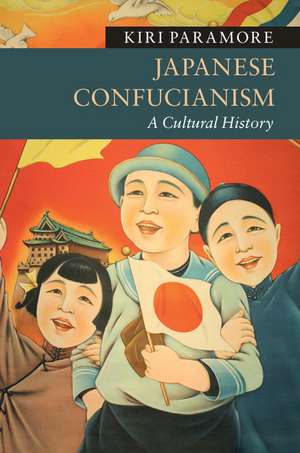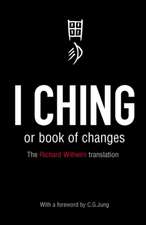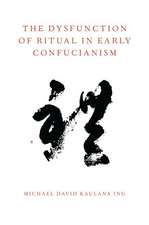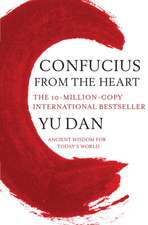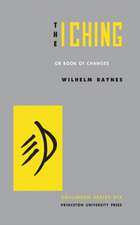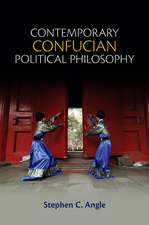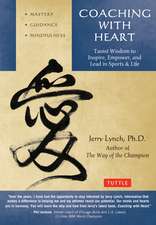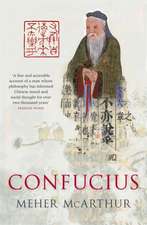Japanese Confucianism: A Cultural History: New Approaches to Asian History
Autor Kiri Paramoreen Limba Engleză Paperback – 17 apr 2016
| Toate formatele și edițiile | Preț | Express |
|---|---|---|
| Paperback (1) | 247.41 lei 6-8 săpt. | |
| Cambridge University Press – 17 apr 2016 | 247.41 lei 6-8 săpt. | |
| Hardback (1) | 637.54 lei 6-8 săpt. | |
| Cambridge University Press – 20 apr 2016 | 637.54 lei 6-8 săpt. |
Din seria New Approaches to Asian History
-
 Preț: 178.06 lei
Preț: 178.06 lei -
 Preț: 236.27 lei
Preț: 236.27 lei -
 Preț: 201.23 lei
Preț: 201.23 lei -
 Preț: 188.02 lei
Preț: 188.02 lei -
 Preț: 199.90 lei
Preț: 199.90 lei -
 Preț: 185.60 lei
Preț: 185.60 lei -
 Preț: 209.50 lei
Preț: 209.50 lei -
 Preț: 192.53 lei
Preț: 192.53 lei -
 Preț: 184.53 lei
Preț: 184.53 lei -
 Preț: 156.72 lei
Preț: 156.72 lei -
 Preț: 227.65 lei
Preț: 227.65 lei -
 Preț: 157.71 lei
Preț: 157.71 lei -
 Preț: 208.30 lei
Preț: 208.30 lei -
 Preț: 241.62 lei
Preț: 241.62 lei -
 Preț: 226.84 lei
Preț: 226.84 lei -
 Preț: 210.33 lei
Preț: 210.33 lei -
 Preț: 184.45 lei
Preț: 184.45 lei -
 Preț: 234.86 lei
Preț: 234.86 lei -
 Preț: 202.90 lei
Preț: 202.90 lei -
 Preț: 279.65 lei
Preț: 279.65 lei -
 Preț: 203.50 lei
Preț: 203.50 lei -
 Preț: 175.52 lei
Preț: 175.52 lei -
 Preț: 252.53 lei
Preț: 252.53 lei -
 Preț: 235.84 lei
Preț: 235.84 lei - 11%
 Preț: 581.66 lei
Preț: 581.66 lei
Preț: 247.41 lei
Nou
Puncte Express: 371
Preț estimativ în valută:
47.35€ • 49.25$ • 39.09£
47.35€ • 49.25$ • 39.09£
Carte tipărită la comandă
Livrare economică 14-28 aprilie
Preluare comenzi: 021 569.72.76
Specificații
ISBN-13: 9781107635685
ISBN-10: 1107635683
Pagini: 249
Ilustrații: 6 b/w illus. 6 maps 1 table
Dimensiuni: 152 x 228 x 15 mm
Greutate: 0.36 kg
Editura: Cambridge University Press
Colecția Cambridge University Press
Seria New Approaches to Asian History
Locul publicării:New York, United States
ISBN-10: 1107635683
Pagini: 249
Ilustrații: 6 b/w illus. 6 maps 1 table
Dimensiuni: 152 x 228 x 15 mm
Greutate: 0.36 kg
Editura: Cambridge University Press
Colecția Cambridge University Press
Seria New Approaches to Asian History
Locul publicării:New York, United States
Cuprins
Introduction; 1. Confucianism as cultural capital: mid-first millennium AD – late sixteenth century AD; 2. Confucianism as religion, 1580s–1720s; 3. Confucianism as public sphere, 1720s–1868; 4. Confucianism as knowledge, 1400s–1800s; 5. Confucianism as liberalism, 1850s–1890s; 6. Confucianism as fascism, 1868–1945; 7. Confucianism as taboo, 1945–2015; Bibliography; Index.
Recenzii
'An outstanding study of the complex and multiple manifestations of Confucianism throughout Japanese history. Through rich historical analyses, Kiri Paramore reveals the surprising and often counter-intuitive roles that Confucianism has played in Japan. This is a book that challenges many of our assumptions about Confucianism and that opens up new ways of thinking about both Japanese history and Confucianism in general.' Michael Puett, Walter C. Klein Professor of Chinese History, Harvard University, Massachusetts and author of Ritual and its Consequences
'Kiri Paramore has written a marvelous book about Confucianism in Japan as a hermeneutic tradition. It is interpreted and lived variously as establishment orthodoxy and subversive authority, as expressive individualism and fascist control, as religious truth and pragmatic dialogue. Its polymorphic role is key to grasping its enduring power in East Asia.' Prasenjit Duara, Raffles Professor of Humanities, National University of Singapore and author of The Crisis of Global Modernity
'If you want to understand the Confucian revival in China, you need to read Kiri Paramore's Japanese Confucianism: A Cultural History. The book's significance goes beyond its nuanced analysis of Confucianism's multiple iterations in Japan. It also explains how Confucianism has become so central in the rise of popular cultural nationalism in China today.' William A. Callahan, London School of Economics and Political Science and author of China Dreams
'Kiri Paramore's Japanese Confucianism: A Cultural History offers a welcome and groundbreaking approach to the current revival of interest in Confucian and Neo-Confucian studies. … The greatest value of this book, however, is its contribution to the field of East Asian Confucian and Neo-Confucian studies. In presenting Japanese Confucianism as a multifaceted tradition outside of China for … more than one thousand years, Paramore has opened the field to new interpretations of what was once considered a hide-bound, monolithic orthodoxy.' Alison Jameson, Reading Religion
'Paramore's analysis remains extremely well-informed and readable throughout the book without unnecessary concessions to academic jargon, thus making it equally useful as a text for courses on Japanese religions.' Ugo Dessì, Religious Studies Review
'Kiri Paramore has written a marvelous book about Confucianism in Japan as a hermeneutic tradition. It is interpreted and lived variously as establishment orthodoxy and subversive authority, as expressive individualism and fascist control, as religious truth and pragmatic dialogue. Its polymorphic role is key to grasping its enduring power in East Asia.' Prasenjit Duara, Raffles Professor of Humanities, National University of Singapore and author of The Crisis of Global Modernity
'If you want to understand the Confucian revival in China, you need to read Kiri Paramore's Japanese Confucianism: A Cultural History. The book's significance goes beyond its nuanced analysis of Confucianism's multiple iterations in Japan. It also explains how Confucianism has become so central in the rise of popular cultural nationalism in China today.' William A. Callahan, London School of Economics and Political Science and author of China Dreams
'Kiri Paramore's Japanese Confucianism: A Cultural History offers a welcome and groundbreaking approach to the current revival of interest in Confucian and Neo-Confucian studies. … The greatest value of this book, however, is its contribution to the field of East Asian Confucian and Neo-Confucian studies. In presenting Japanese Confucianism as a multifaceted tradition outside of China for … more than one thousand years, Paramore has opened the field to new interpretations of what was once considered a hide-bound, monolithic orthodoxy.' Alison Jameson, Reading Religion
'Paramore's analysis remains extremely well-informed and readable throughout the book without unnecessary concessions to academic jargon, thus making it equally useful as a text for courses on Japanese religions.' Ugo Dessì, Religious Studies Review
Notă biografică
Descriere
This book charts the history of Confucianism in Japan to offer new perspectives on the sociology of Confucianiam across East Asia.
